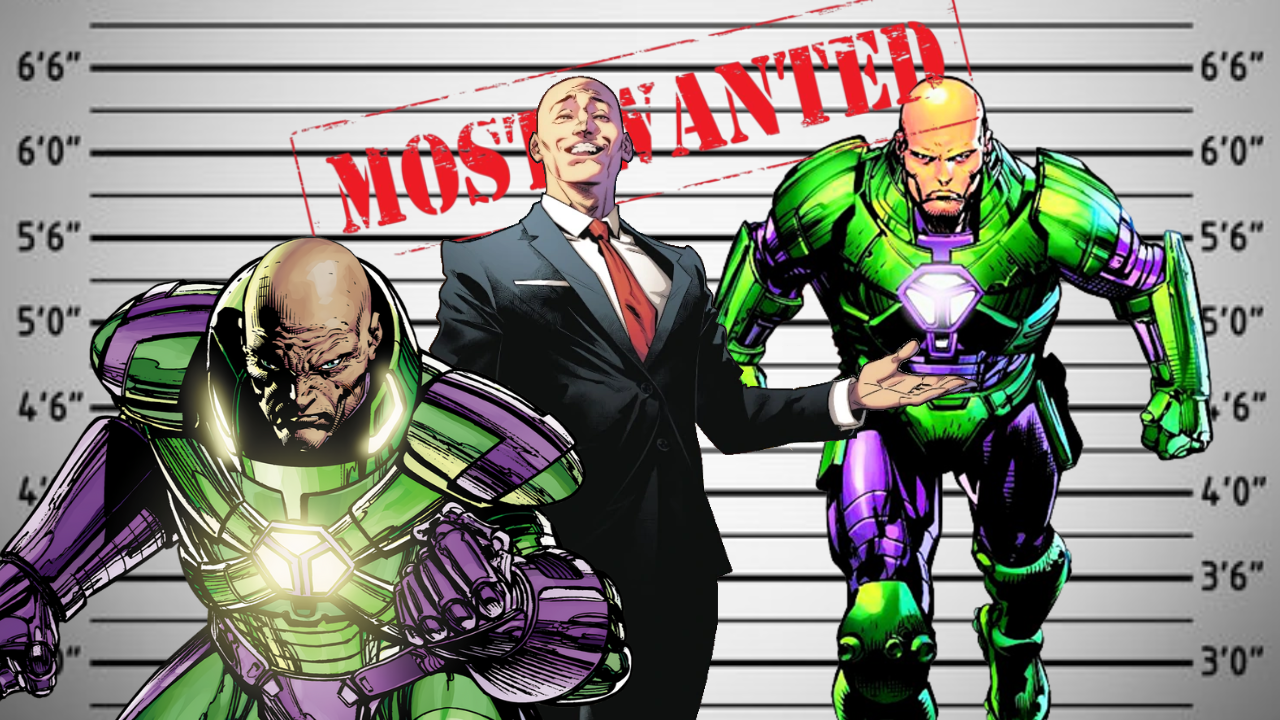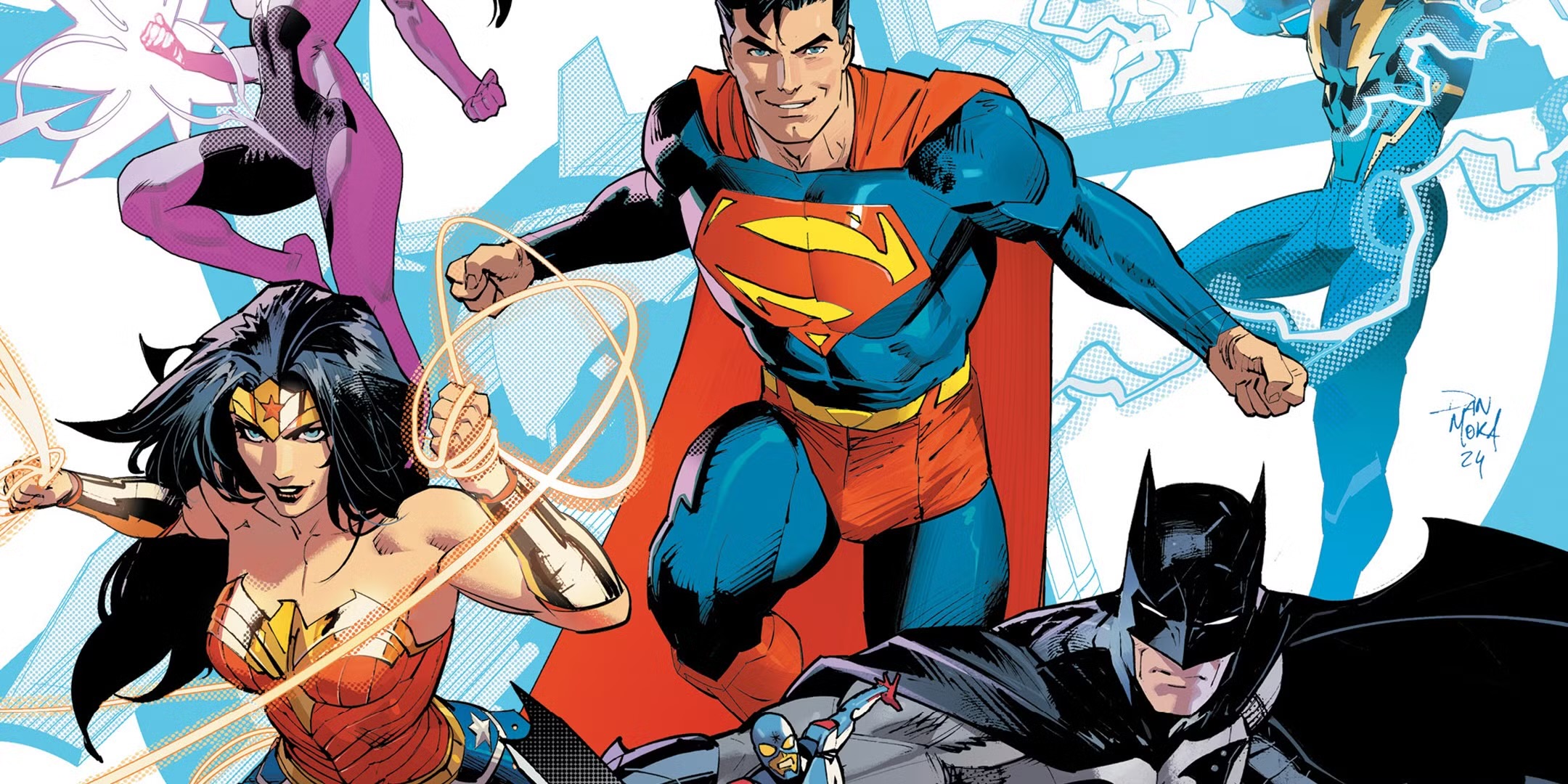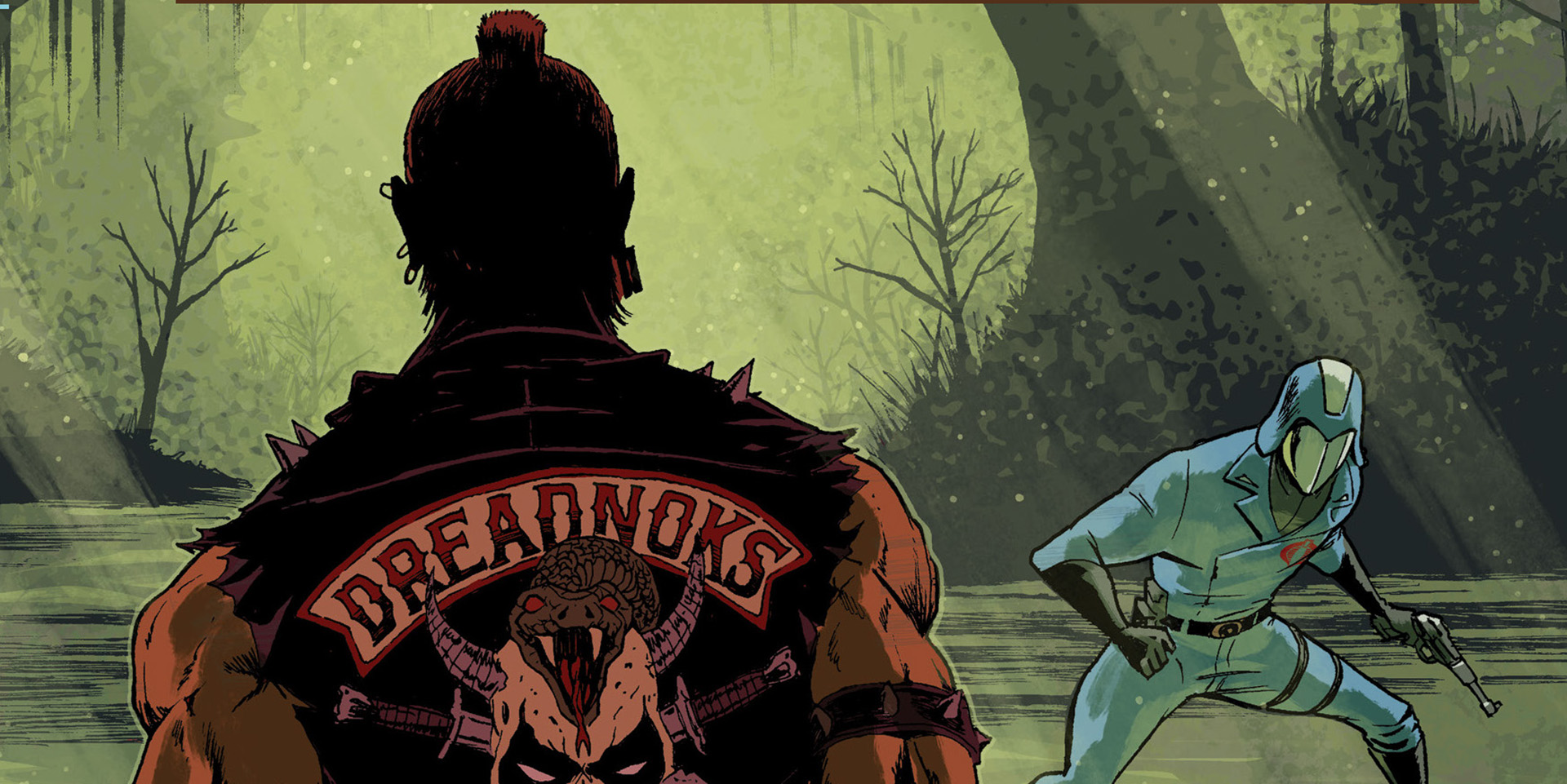Lex Luthor is one of DC Comics’ most iconic villains and Superman’s most enduring foe. First introduced in Action Comics #23 in 1940, Luthor was initially portrayed as a mad scientist, but over time, he evolved into a complex character, shifting between a brilliant scientist, a ruthless businessman, and even a political power player. Luthor’s development reflects changing cultural and social values over the decades, making him one of the most enduring and versatile characters in comic book history.
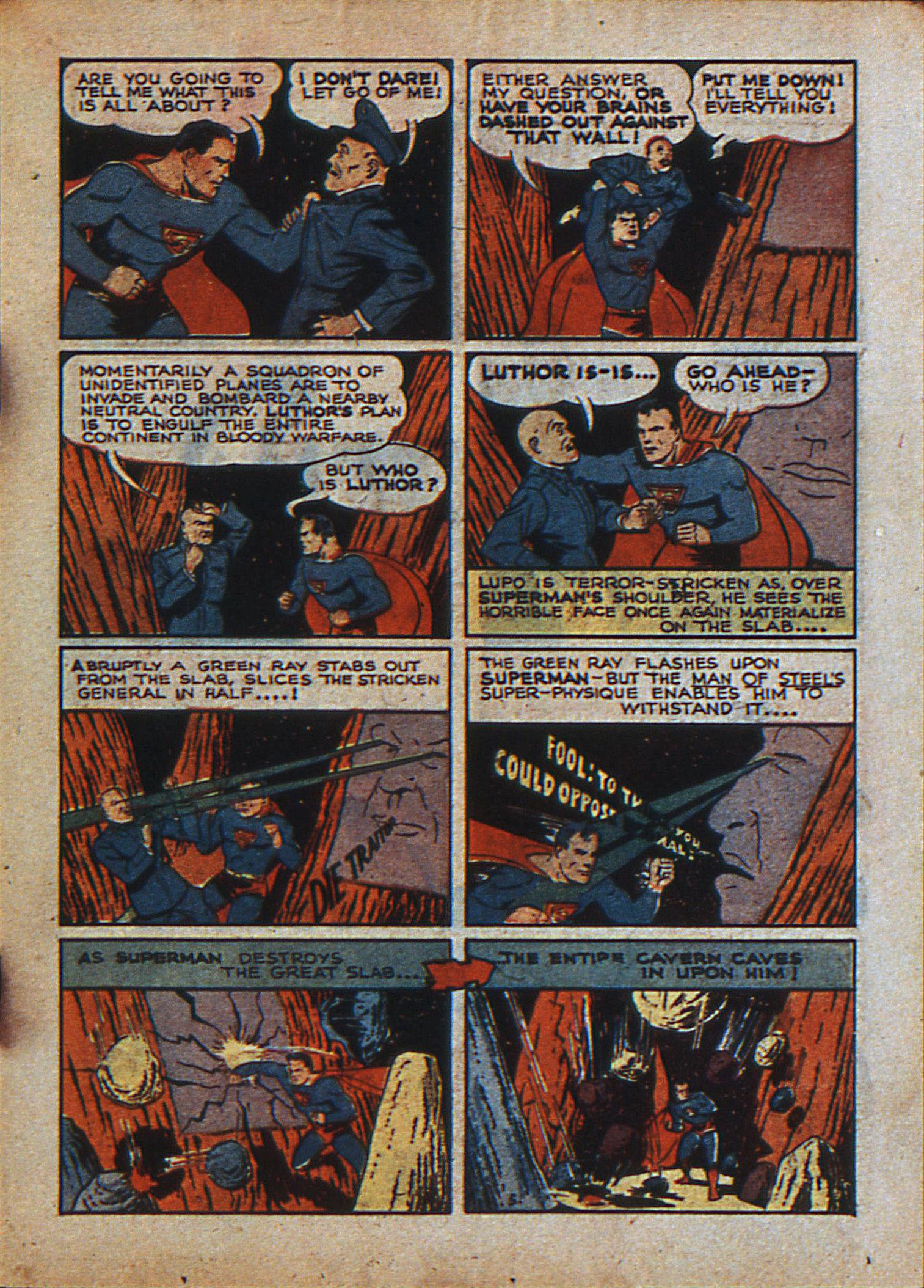
In Luthor’s first appearance, created by Jerry Siegel and Joe Shuster, he was a genius-level mad scientist determined to conquer the world. Unlike Superman’s other adversaries, Luthor had no superpowers, relying instead on his intellect, technology, and schemes. His original portrayal featured him with a full head of red hair, and he became known for his ability to manipulate technology and outwit his enemies.
However, the early stories didn’t dive deeply into Luthor’s motivations; he was simply depicted as a criminal mastermind. His rivalry with Superman was straightforward: Luthor saw Superman as an obstacle to his own ambitions of domination, and Superman saw Luthor as a threat to society. Luthor’s animosity would become increasingly personal as his character evolved.
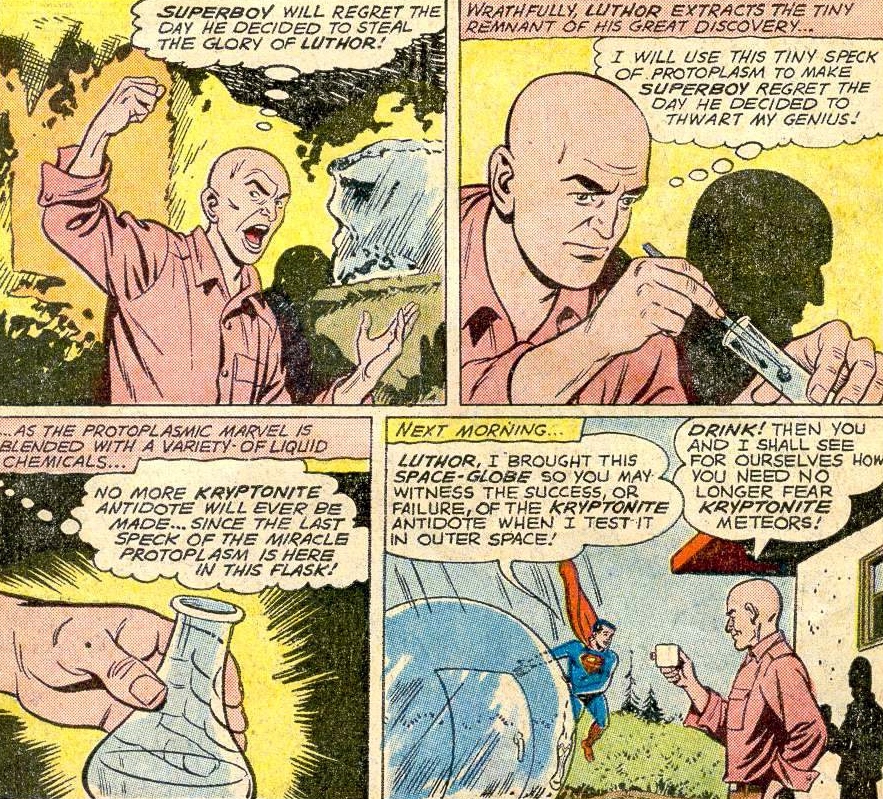
In the 1950s and 60s, the Silver Age of Comics redefined many DC characters, including Luthor. The writers established Luthor’s backstory, notably in Adventure Comics #271, where it was revealed that Luthor and Superman had once been friends in their youth. According to the story, young Lex and young Clark Kent (Superboy) were friends until an accident in Luthor’s lab caused a fire that destroyed his experiments and caused him to lose his hair. Luthor blamed Superboy for the accident, marking the beginning of their lifelong feud.
This new backstory gave depth to Luthor’s hatred of Superman, portraying him as a character whose drive for revenge stemmed from perceived betrayal. Luthor’s character also transitioned from a simple criminal to a wealthy industrialist and scientific genius. He continued to invent weapons and machines capable of challenging Superman, and he became a symbolic figure in American comics, embodying unchecked ambition and hubris.
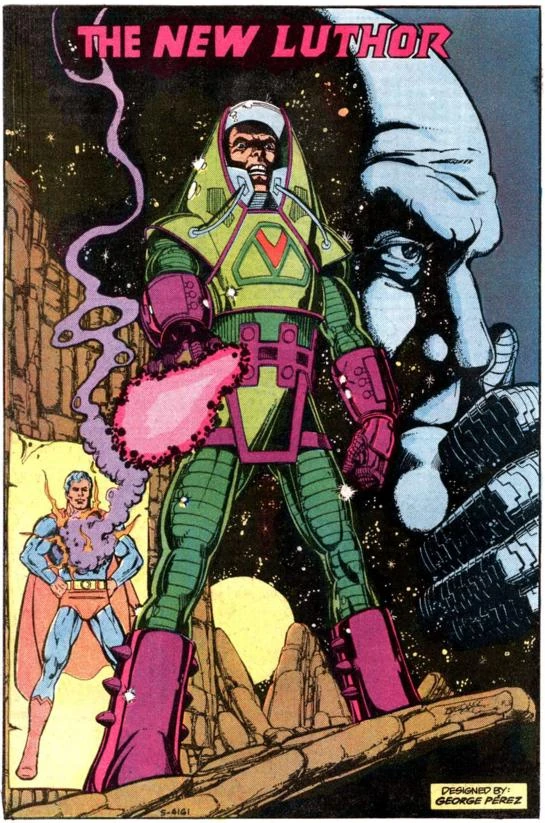
By the 1970s and 80s, Luthor’s character underwent another transformation to align with the times. As corporate influence began to rise in society, Luthor was reimagined as a corporate tycoon, founding the fictional conglomerate LexCorp. Now, instead of building weapons in a lab, Luthor wielded his wealth and business empire to challenge Superman and control Metropolis. This version of Luthor was introduced by writer Marv Wolfman and artist Gil Kane and became widely popular in The Man of Steelminiseries by John Byrne in 1986.
In this era, Luthor’s ambition took on new dimensions, as he sought not only to defeat Superman but to control the city and even the country. He was no longer a simple villain; he was now a shrewd, cunning CEO, using his resources to paint Superman as a threat to humanity. Luthor’s shift to the corporate world made him a villain relevant to the 1980s, reflecting the anxieties around corporate power and ethics.
Following the Crisis on Infinite Earths event, which reset the DC Universe, Luthor’s character was further solidified as a powerful, calculating businessman and occasional politician. In the 2000s, he reached new heights when he was elected President of the United States in the storyline Lex 2000, written by Jeph Loeb. As President, Luthor tried to use his position to discredit and undermine Superman on a global stage.
This storyline highlighted Luthor’s ability to manipulate public opinion and wield political power, a stark contrast to Superman’s clear-cut heroism. His presidency was marked by corruption and intrigue, and he used his office to pursue his vendetta against Superman while projecting a facade of respectability. Eventually, Luthor’s presidency unraveled due to his corruption and abuse of power, but the story remains a notable example of the character’s adaptability and relevance to contemporary issues.
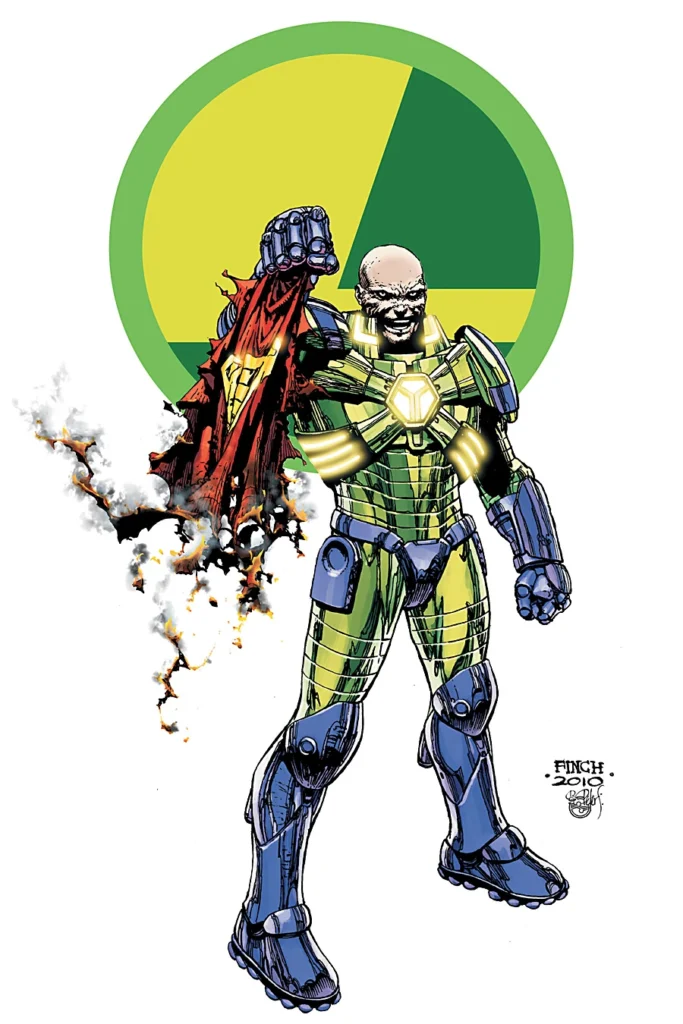
In 2011, DC Comics rebooted its universe again with The New 52, a line-wide relaunch that reimagined many iconic characters, including Luthor. In this iteration, Luthor once again oscillated between a villain and an antihero, even joining the Justice League temporarily. During the Forever Evil storyline, Luthor takes center stage as an unlikely hero, uniting a group of villains to save the world when the Justice League is incapacitated. This storyline complicated his character, as it presented him as a person who sees himself as a hero—at least in his own eyes.
The Rebirth era continued this nuanced approach, depicting Luthor as an antihero who wrestled with his identity. For a time, he even wore the “S” symbol on his chest, challenging Superman’s legacy and claiming that he, not the Man of Steel, was the true protector of humanity. However, Luthor’s antagonistic relationship with Superman remained at the core of his character, as his ambition and ego ultimately led him back to his villainous roots.
In recent years, Luthor has once again taken on a more villainous role in DC’s expansive multiverse storylines. During Scott Snyder and James Tynion IV’s Justice League run, Luthor undergoes a transformation into an “Apex Predator” after making a deal with the villainous Perpetua. This storyline sees Luthor embracing his darkest impulses, pushing him beyond his role as a corporate mogul and politician to become a near-godlike entity intent on remaking reality to his design.
The Apex Predator storyline marked one of Luthor’s most ambitious and sinister transformations, solidifying his role as a villain capable of threatening not only Superman but the entire multiverse. Despite this escalation in power, Luthor’s motivations remained rooted in his belief that he, not Superman, should be the one to shape humanity’s future.
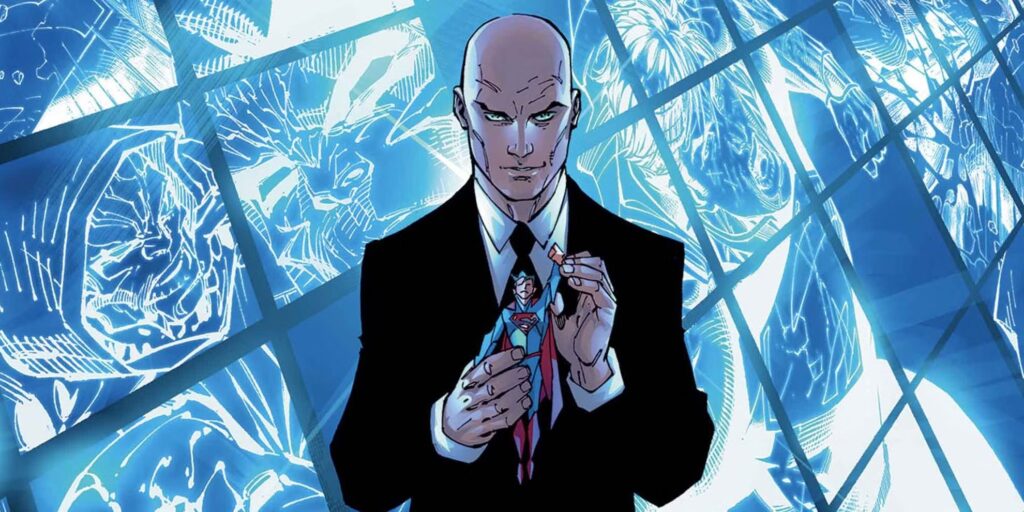
Lex Luthor’s evolution from mad scientist to corporate mogul, to president, and even cosmic villain, reflects the character’s adaptability and the enduring power of his rivalry with Superman. Luthor embodies many facets of human ambition, from intellectual curiosity to ruthless capitalism, and even political power. His character speaks to themes of jealousy, power, and the limits of human potential, providing a stark contrast to Superman’s selflessness and strength.
Today, Lex Luthor remains one of the most complex and versatile villains in the DC Universe, serving as both a mirror and an antithesis to Superman. His constant reinvention over the decades has kept him relevant to changing societal values and issues, solidifying his status as one of the most iconic villains in comic book history.

